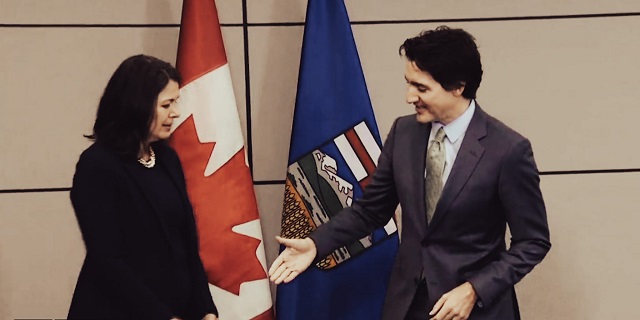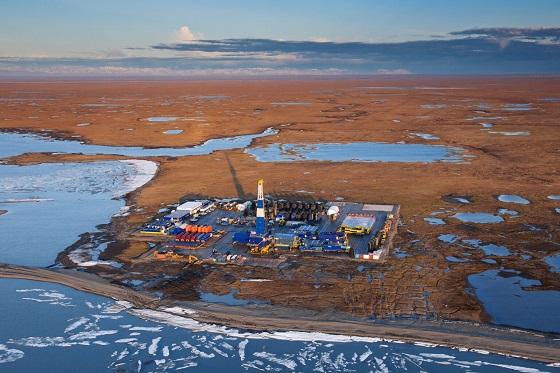National
Trudeau’s Senate Power Grab – How Every Province is Now Under Ottawa’s Thumb

First, let’s talk about who these new senators are. Dr. Kristopher Wells is one of them. Wells is a well-known activist in the 2SLGBTQ+ community, a vocal advocate for every liberal cause under the sun. He’s been busy pushing for policies that promote radical gender ideology in schools, criticizing Alberta’s conservative stance at every turn. Now, Trudeau wants us to believe that Wells, who has made a career out of progressive activism, will somehow be an “independent” voice in the Senate? Give me a break.
Let’s be absolutely clear here, folks: Daryl Fridhandler is no impartial figure. He’s a corporate lawyer who’s spent years involved in organizations pushing left-wing agendas under the guise of community service. And what does that really mean? He’s a leftist activist, plain and simple.
And now, Trudeau wants us to believe Fridhandler’s Senate appointment is “independent”? Give me a break. This guy has funneled nearly $80,000 into the Liberal Party—($79,968.77, to be exact). The Senate shouldn’t be for sale to the highest bidder or most loyal crony. This is a classic Trudeau move, stacking the Senate with his cronies and turning it into a rubber stamp for his radical agenda. It’s not just political maneuvering; it’s an outright attack on our democratic institutions.
The Senate is supposed to serve as a check on power, a place for sober second thought, not a Liberal lapdog doing Trudeau’s bidding. This is the kind of corrupt backroom dealing that erodes public trust and undermines the very fabric of our democracy.
Now, let’s turn to Alberta Premier Danielle Smith. She’s not happy, and frankly, who can blame her? She called out these appointments for what they are—another shameless attempt by Trudeau to undercut the democratic will of Albertans. Smith points out that Alberta has a system for electing senators-in-waiting, who are meant to represent the interests of Albertans in Ottawa. Yet, Trudeau has completely ignored these elected representatives. Instead, he has handpicked his own cronies. And make no mistake, these so-called “independent” senators are Justin Trudeaus cronies and will vote whichever way he tells them too.
Smith’s objection isn’t just about these specific appointees. It’s about the broader pattern we’ve seen from this government— a total disregard for Alberta’s democratic choices. Remember, folks, Alberta has repeatedly elected conservative senators-in-waiting, people who actually represent the interests of their province. But Trudeau doesn’t care about that. No, he’d rather install people who are loyal to him, not to the people of Alberta.
This brings us to the so-called Independent Advisory Board for Senate Appointments. Trudeau loves to talk about how this board is “independent,” how it’s all about merit-based criteria, blah, blah, blah. But let’s get real for a second. This board isn’t independent at all. The members are nominated by Trudeau. They report to Trudeau. They recommend candidates to Trudeau. And then Trudeau appoints his picks, all while pretending there’s some kind of impartial process at play. It’s a total sham!
Let’s break it down even further. The whole process is designed to look like it’s fair and transparent, but in reality, it’s just another way for Trudeau to exert control. The so-called independent senators are anything but. They might not wear Liberal Party badges, but make no mistake—they’re marching to the beat of Trudeau’s drum. This isn’t about finding the best people to serve Canadians. It’s about finding the best people to serve Justin Trudeau and his agenda.
This isn’t just my opinion—look at the facts. Since 2016, Trudeau has made 86 appointments to the Senate, all under this “independent” system. And surprise, surprise, the Senate has drifted further and further left, rubber-stamping Trudeau’s policies with little resistance. The whole thing is a farce, and Trudeau’s latest picks just prove it.
And here’s the proof that the Senate isn’t independent: Bill C-18. This so-called “Online News Act” is Trudeau’s failed attempt at news censorship. The bill mandates that tech giants like Google and Meta (formerly Facebook) pay Canadian news publishers for content shared on their platforms. It sounds nice on paper, but what’s the result? Meta decided to ban all news content in Canada. That’s right. Canadian independent media lost its voice because they’re no longer being shared on the platforms where people actually get their news.
Ask yourself: if the Senate was truly independent, truly balanced with some business-savvy, right-leaning representatives, do you really think a bill like C-18 would have passed? No chance. Any senator with a shred of common sense would recognize that forcing tech companies into these kinds of deals doesn’t solve the problem; it just pushes these companies to cut ties with Canadian news entirely. But this Senate, filled with Trudeau’s picks, rubber-stamped it without a second thought.
The Senate was designed to be a place of independent judgment, a check on whoever’s in power—be it Liberal, Conservative, or otherwise. It’s supposed to ensure that no single party can bulldoze their agenda without scrutiny. But what happens when Trudeau stacks the Senate with his cronies? The whole system collapses! Even if the Conservatives take power tomorrow, Trudeau’s liberal foot soldiers will be there, blocking, stalling, and pushing his leftist agenda from the shadows of the Senate.
So, where does this leave Canada? It leaves us with a Senate that is increasingly a tool of the Prime Minister’s Office, rather than a chamber for balanced debate and regional representation. Every province, not just Alberta, is now at the whims of Ottawa, Justin Trudeau, and his handpicked cronies. The Senate no longer reflects the diverse interests of Canadians; instead, it mirrors the ideological leanings of one man. Provinces across the country are left sidelined, their democratic choices ignored, and their voices muted under Trudeau’s centralized control.
Danielle Smith is right to be furious. Albertans are right to be furious. And every Canadian who cares about democracy and fairness should be furious too. The Senate is supposed to be an independent body, a check on the power of the Prime Minister, not a rubber stamp for his agenda. But as long as Trudeau is in charge, it looks like that’s exactly what it’s going to be. And that’s not just a shame—it’s a scandal.
For the full experience, subscribe to The Opposition with Dan Knight .
International
Trump admin wants to help Canadian woman rethink euthanasia, Glenn Beck says

From LifeSiteNews
Jolene Van Alstine, approved for state-sanctioned euthanasia after enduring long wait times to receive care for a rare parathyroid disease, is in need of a passport to enter the U.S.
Well-known American media personality Glenn Beck says he has been in touch with the U.S. State Department to help a Canadian woman in Saskatchewan reconsider euthanasia after she sought assisted suicide due to long medical wait times to address her health problems.
As reported by LifeSiteNews on Tuesday, Canadian woman Jolene Van Alstine was approved to die by state-sanctioned euthanasia because she has had to endure long wait times to get what she considers to be proper care for a rare parathyroid disease.
Van Alstine’s condition, normocalcemic primary hyperparathyroidism (nPHPT), causes her to experience vomiting, nausea, and bone pain.
Her cause caught the attention of Beck and many other prominent Americans and Canadians on X.
In an update today on X, Beck said, “Jolene does not have a passport to gain legal entry into the U.S., but my team has been in touch with President (Donald) Trump’s State Department.”
“All I can say for now is they are aware of the urgent life-saving need, and we had a very positive call,” he added.
Beck had said before that he was in “contact with Jolene and her husband” and that he had “surgeons who emailed us standing by to help her.”
As of press time, neither the State Department nor other officials have not yet confirmed Beck’s claim that he has been in touch with them.
As a result of Van Alstine’s frustrations with the healthcare system, she applied for Canada’s Medical Assistance in Dying (MAiD) and was approved for January 7.
As reported by LifeSiteNews, over 23,000 Canadians have died while on wait lists for medical care as Prime Minister Mark Carney’s Liberal government is focused on euthanasia expansions.
A new Euthanasia Prevention Coalition report revealed that Canada has euthanized 90,000 people since 2016, the year it was legalized.
As reported by LifeSiteNews recently, a Conservative MP’s private member’s bill that, if passed, would ban euthanasia for people with mental illness received the full support of the Euthanasia Prevention Coalition.
Censorship Industrial Complex
Conservative MP calls on religious leaders to oppose Liberal plan to criminalize quoting Scripture

From LifeSiteNews
Quoting the Bible, Quran, or Torah to condemn abortion, homosexuality, or LGBT propaganda could be considered criminal activity
Conservatives are warning that Canadians should be “very afraid” of the Liberals’ proposal to punish quoting Scripture, while advising religious leaders to voice their opposition to the legislation.
During a December 6 session in Parliament, Conservative Member of Parliament (MP) Larry Brock warned Canadians of the very real threat to their religious freedom thanks to proposed amendments to Bill C-9, the “Combating Hate Act,” that would allow priests quoting Scripture to be punished.
“Do Christians need to be concerned about this legislation?” MP Bob Zimmer questioned. “Does it really threaten the Bible and free speech in Canada?”
“They should be very afraid,” Brock responded. “Every faith leader should be very afraid as to what this Liberal government with the support of the Bloc Quebecois wishes to do.”
“As I indicated, religious freedom is under attack at the hands of this Liberal government,” he declared.
Brock stressed the need for religious leaders to “speak out loud and clear” against the proposed amendment and contact their local Liberal and Bloc MPs.
Already, the Canadian Conference of Catholic Bishops penned an open letter to the Carney Liberals, condemning the proposed amendment and calling for its removal.
As LifeSiteNews reported earlier this week, inside government sources revealed that Liberals agreed to remove religious exemptions from Canada’s hate speech laws as part of a deal with the Bloc Québécois to keep Liberals in power.
Bill C-9, as reported by LifeSiteNews, has been blasted by constitutional experts as empowering police and the government to go after those it deems to have violated a person’s “feelings” in a “hateful” way.
Now, the Bloc amendment seeks to further restrict free speech. The amendment would remove the “religious exemption” defense, which has historically protected individuals from conviction for willful promotion of hatred if the statements were made “in good faith” and based on a “religious subject” or a “sincerely held” interpretation of religious texts such as passages from the Bible, Quran, or Torah.
As a result, quoting the Bible, Quran, or Torah to condemn abortion, homosexuality, or LGBT propaganda could be considered criminal activity.
Shortly after the proposed amendment was shared on social media, Conservatives launched a petition, calling “on the Liberal government to protect religious freedom, uphold the right to read and share sacred texts, and prevent government overreach into matters of faith.”
Already, in October, Liberal MP Marc Miller said that certain passages of the Bible are “hateful” because of what it says about homosexuality and those who recite the passages should be jailed.
“Clearly there are situations in these texts where these statements are hateful,” Miller said. “They should not be used to invoke or be a defense, and there should perhaps be discretion for prosecutors to press charges.”
His comments were immediately blasted by Conservative politicians throughout Canada, with Alberta provincial Conservative MLA and Minister of Municipal Affairs Dan Williams saying, “I find it abhorrent when MPs sitting in Ottawa – or anyone in positions of power – use their voice to attack faith.”
-

 National2 days ago
National2 days agoLiberal bill “targets Christians” by removing religious exemption in hate-speech law
-

 C2C Journal11 hours ago
C2C Journal11 hours agoWisdom of Our Elders: The Contempt for Memory in Canadian Indigenous Policy
-

 Crime2 days ago
Crime2 days agoInside the Fortified Sinaloa-Linked Compound Canada Still Can’t Seize After 12 Years of Legal War
-

 Business1 day ago
Business1 day agoLooks like the Liberals don’t support their own Pipeline MOU
-

 Business2 days ago
Business2 days agoThe Climate-Risk Industrial Complex and the Manufactured Insurance Crisis
-

 Health2 days ago
Health2 days agoThe Data That Doesn’t Exist
-

 Business1 day ago
Business1 day agoConservative MP warns Liberals’ national AI plan could increase gov’t surveillance
-

 Business2 days ago
Business2 days agoCanada Can Finally Profit From LNG If Ottawa Stops Dragging Its Feet








